(But Doesn’t Know It Yet)
Parents often have brilliant ideas about what their kids should do during the summer. And kids – especially teenagers – often have their own, quite different notions. Although some teens and parents never quite see eye to eye on the ideal summer experience, there are some opportunities where you can both be happy.
On one hand, the Outward Bound expeditionary learning framework ensures that students are using their time in a productive, character-enhancing manner – which makes parents happy. And on the other hand, students on Outward Bound expeditions get access to some of the country’s most beautiful places. They spend time laughing with students their own age. And they get some much-needed time away from parents and siblings. All of which makes teens happy.
The truth is, your teen wants what Outward Bound has to offer. They just don’t know it yet. Below, we’ve outlined the top ten things that your teen wants from an Outward Bound course – whether they know it or not.
1. Communication Skills
As students move through the wilderness, they learn from the industry’s best communicators – Outward Bound Instructors. Top-notch Instructors serve as excellent role models for teens as they set clear expectations, demonstrate technical skills and techniques, facilitate group discussions, and use clear, effective communication. Students practice communication skills on a daily basis as they work together to establish routes, set up and break down camp and tackle new challenges. Students return home with new strategies for communicating their needs – and find they might just be able to negotiate that later curfew or weekend trip.
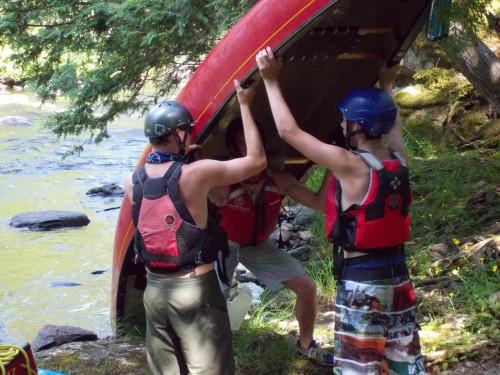
Students communicate and work together while portaging a canoe on course with Outward Bound.
2. Independence
Removed from friends, family and community, Outward Bound students learn to rely on themselves – and are often surprised to discover just how much they can do on their own. Responsible for their own gear, and often in charge of leading the group during the Main and Final phases of the expedition, students develop a genuine sense of independence. Upon their return home, they are often less reliant on others – and more willing to make their own path.
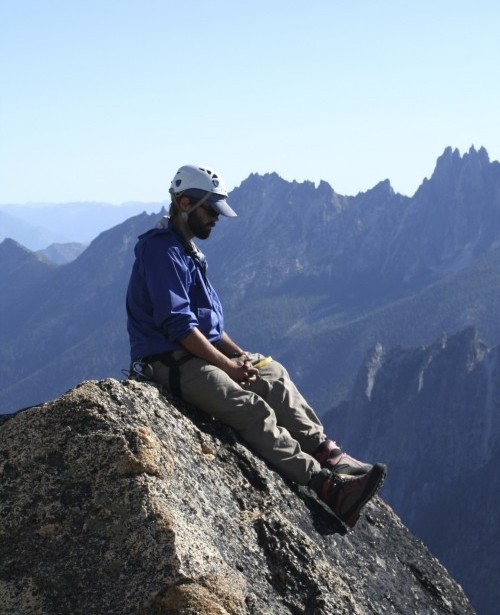
A student takes some time for himself after a day of mountaineering on course with Outward Bound.
3. Self-Confidence
Outward Bound’s expeditionary learning model centers on a progression of skills. Students learn how to do things like start a cook stove or set up a tarp – and then they spend the expedition practicing these skills – and ultimately mastering them. Although it might not sound like a monumental achievement, students derive great pride from tying a knot correctly; mastering a paddle stroke, or learning the proper terms for belaying and rappelling. These small accomplishments add up to a real sense of confidence. Students return home with the knowledge that whatever it is, they can do it. Their newfound self-esteem means they’re not afraid to try new things.
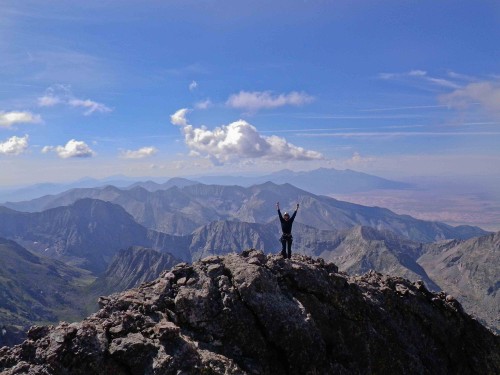
A student celebrates getting to the summit during a mountaineering course with Outward Bound.
4. Conflict Resolution Skills
Conflict is inevitable on an Outward Bound course. Adverse weather conditions, demanding physical activities and a diverse group of people all create dynamic, sometimes challenging circumstances. However, rather than avoid conflict altogether, students learn to embrace it – and deal with it in a productive, healthy way. Instructors model positive conflict resolution techniques as situations arise. They often pause to discuss how a situation escalated and what the crew might have learned from the outcomes. Students return home with realistic expectations about conflict, and implement positive strategies to resolve arguments. Post-course, parents might notice that students are less combative – and more direct and articulate – when a disagreement occurs.
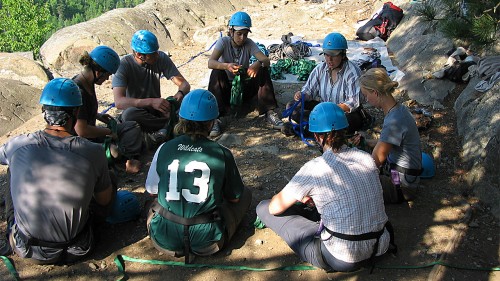
An Outward Bound Instructor debriefs with a group of students.
5. Boundary Pushing
Fear serves as a powerful barrier between individuals and their goals. But we often don’t realize how much fear holds us back until we are placed in situations where we are required to push past the barrier – and reach new levels of accomplishment. Outward Bound courses push students out of their comfort zone – and encourage them to reconsider the difference between “can’t” and “can.” These moments of grit and sweat provide enormous opportunities for personal growth. Students are often amazed at just how much they can do – and look forward to breaking past the next barrier, whatever it may be. They return home with a more open mindset – and are more likely to say “I will” than “I can’t.”
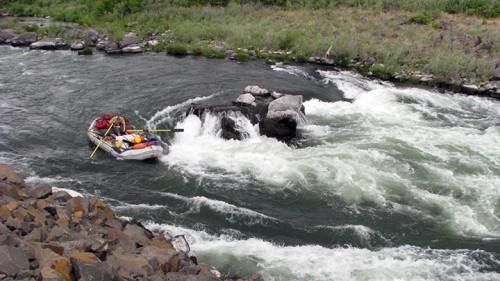
Students push their boundaries as they navigate through rapids during a rafting expedition with Outward Bound.
6. Time to Think
In a world full of electronic stimulation and jam-packed schedules, it can be hard to slow down – much less engage in deep thought. Unplugged from technology and released from the obligations of the calendar, Outward Bound students have the unique opportunity to think. They think as they paddle. They think as they hike. They think as they lie beneath the stars, waiting for sleep. An Outward Bound expedition is a chance to consider identity – and our place in this world. Students return home with a better sense of who they are – and who they want to become.
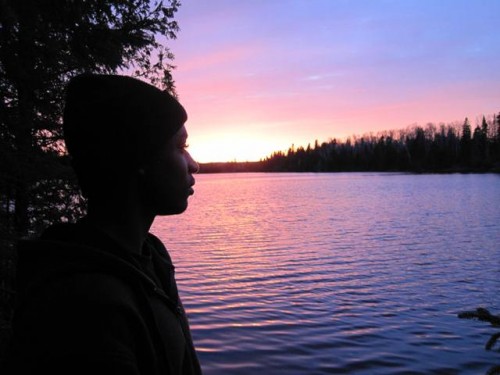
A student takes some time to reflect during an Outward Bound course.
7. New appreciation for the world around them
Living and traveling in nature allows students to connect with the earth in an entirely new way. Not only are they literally sleeping on the ground, but they are learning about the flora and fauna of their course area firsthand. They may learn the names of Colorado wildflowers; they may learn to differentiate between huge storm clouds and a light summer shower. They learn the difference between an ideal campsite and a mediocre one. They learn to stop and observe the ants; the ripples on the water; the direction of the wind. Students also learn to appreciate the world back home. Things they may have taken for granted – like running water, refrigeration and electricity become luxuries – to be carefully preserved – when students arrive back home.
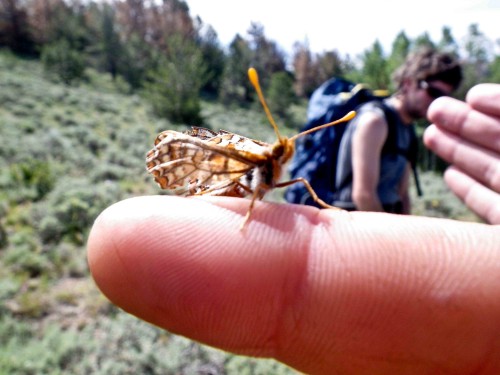
A student appreciates life in all contexts on course with Outward Bound.
8. Organizational and Leadership Skills
On an Outward Bound course, students are faced with a variety of logistical challenges. How to divvy out the food? How to arrive at point A, B, or C? How to effectively pack a backpack? How to deal with a sick, tired, or uncooperative crewmate? Each of these challenges provides invaluable organizational training. Students learn to come up with a good plan, execute the plan, and adapt the plan based on obstacles that arise. Natural leaders often emerge during an Outward Bound course. But every student has the chance to leading – which gives them an opportunity to experiment with leadership styles, reflect on what works and what doesn’t, and emerge as more effective, more self-aware leaders.
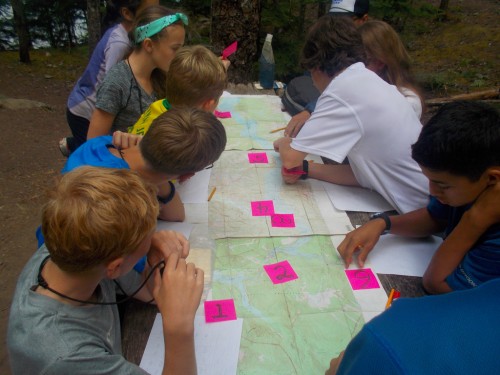
Students create a navigation plan while on course with Outward Bound.
9. Mindfulness and Awareness
Stripped of modern trappings like smart phones, cars and computers, students start to pay attention to themselves, each other, and the world around them. They pause to appreciate the simplicity of a peanut butter sandwich. They notice when a student in front of them is losing their water bottle. They are observant of themselves, too. Things they may never have noticed, they begin to take note. They realize that yesterday they didn’t drink enough water – and make the connection as to why they were dragging at the end of the day. They return home with their eyes wide open – and a better understanding of themselves.
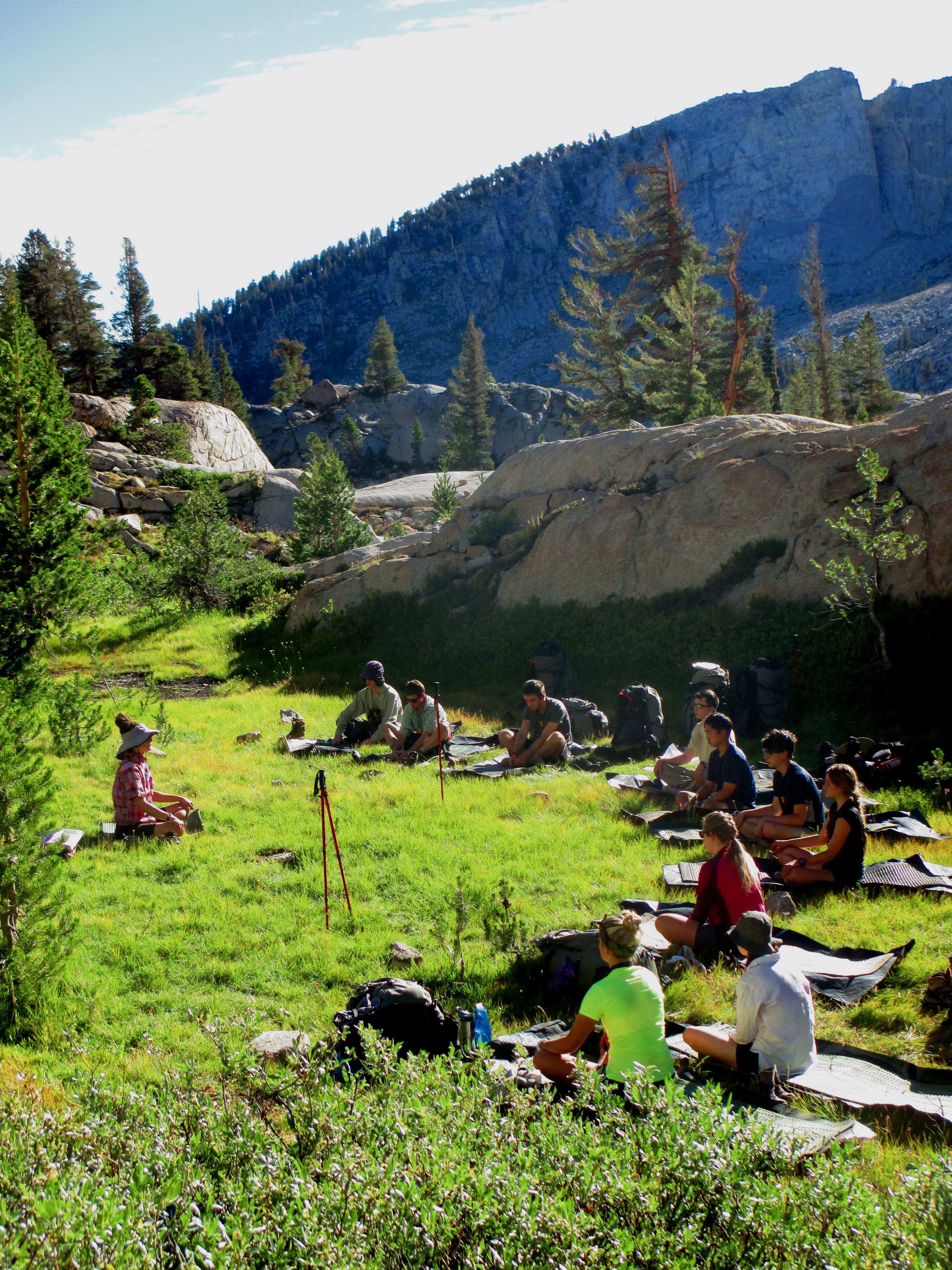
Students practice mindfulness through yoga on course with Outward Bound.
10. Compassion and Tolerance
Surrounded by teens they have never met, many of whom are quite different from themselves, teens broaden their social horizons – and learn the power of compassion. Following the lead of genuine, compassionate Outward Bound Instructors, students learn to appreciate the differences among crew members – and celebrate the common experience the group shares. Students return home with open minds – and a more tolerant, accepting approach to social interactions.
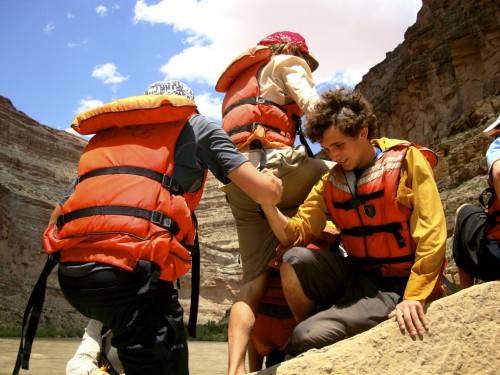
Students work together during a rafting expedition with Outward Bound.
Are you ready to get your teen on course? Visit www.outwardbound.org to start exploring the rich variety of Outward Bound course activities and locales. With expeditions year round, you’re certain to find a course that fits your schedule. Make this summer meaningful with a course with Outward Bound.
OTHER POSTS YOU MAY LIKE
Read More
Read More
Read More




